NZXT H7 Flow ATX Mid Tower Case
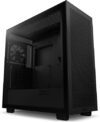
NZXT H7 Flow ATX Mid Tower Case Price comparison
NZXT H7 Flow ATX Mid Tower Case Price History
Price History for NZXT - H7 Flow 2024 Mid-Tower ATX Case - Black
Statistics
| Current Price | $129.99 | October 28, 2024 |
| Highest Price | $129.99 | August 26, 2024 |
| Lowest Price | $129.99 | August 26, 2024 |
Last price changes
| $129.99 | August 26, 2024 |
NZXT H7 Flow ATX Mid Tower Case Description
- BETTER THERMALS: We’ve opened up the top panel to achieve even better thermal efficiency. The perforated panel provides improved ventilation as warm air flows through the top of the chassis.
- RADIATORS: The top and front of the case support radiators up to 360mm, while the front panel can accommodate three 140mm fans for maximum cooling.
- BUILDING SIMPLIFIED: Streamline the build process with an improved cable management system. Wider cable channels provide more room to easily route cables, while the addition of hooks add stability.
- A MODERN LOOK: The H7 combines the modern look of the H series with new color options that fit in seamlessly with any aesthetic. Each color is paired with glass tinting that complements the respective chassis.
- MORE SPACE: Ample space and clearance make the H7 a spacious chassis for ambitious builds.
NZXT H7 Flow ATX Mid Tower Case Specification
Specification: NZXT H7 Flow ATX Mid Tower Case
|
NZXT H7 Flow ATX Mid Tower Case Reviews (10)
10 reviews for NZXT H7 Flow ATX Mid Tower Case
Only logged in customers who have purchased this product may leave a review.

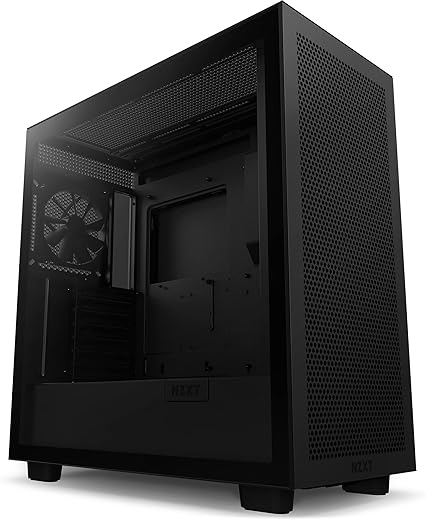

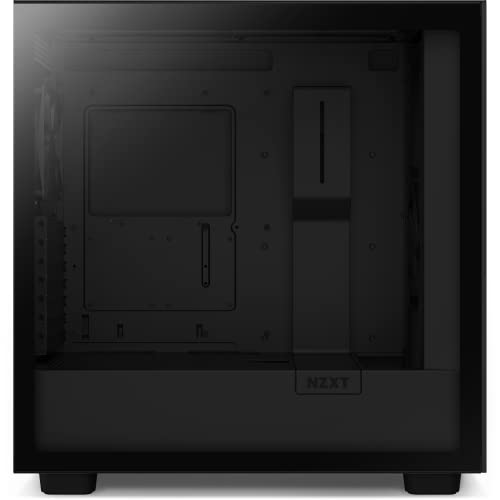
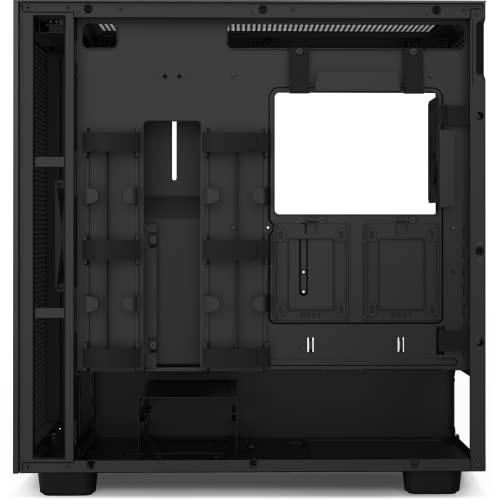
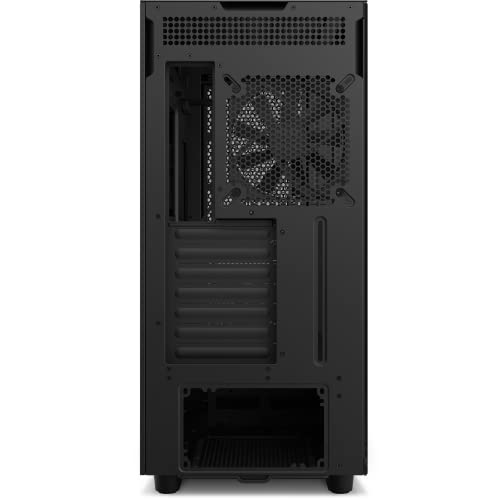



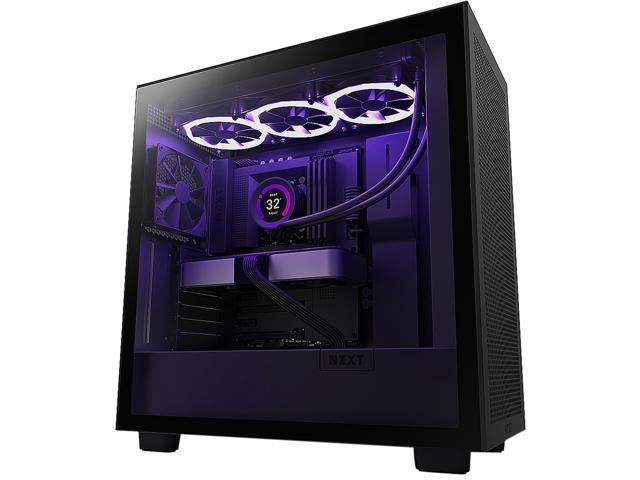














Greg H. –
Very nice case.
Things I like:
– Easy to remove all panels, no screw driver necessary.
– Mine came with 4 fans including 3 in the front (RGB) and 1 in the back (exhaust, not RGB). I saved some $$’s not having to buy extra fans
– Plenty of room for cable management, allows a clean build
– Just enough connectors on the case (headphone jack, 2 USB A and 1 USB C)
There is also plenty of room for SSD drives and other accessories, but I don’t plan on using anything else at this point.
Thik02 –
Produit de qualité conforme à la description.
Chris –
Aquí si cabe mi Nh d15 de Noctua, es un enorme gabinete!!
Nathan Robe –
I’ve liked NZXT for a while now. I used to own the old H500 before it was discontinued, and I almost went with the H5 because I wanted something familiar. I’m glad I didn’t and treated myself to the H7.
It’s a gorgeous, slick case. Of course, looks aren’t everything, and the H7 knows it needs to bring something more to the table. It’s spacious, easy to work inside of, and has great airflow. It’s a little on the heavy side, but in turn ends up feeling sturdy as a result. Now, if space is a premium, this isn’t the case for you, as it does have a decently sized footprint. That said, if you’ve got the space, it’s an absolute banger. 5/5, would recommend.
Lester –
The H7 has to be one of the best cases ive used. It comes with 4 pre-installed fans, 3 rgb ones in the front and 1 in the back. The cable management system in the back is extremely good and I highly recommend picking this case up for your build. The case has to be one of the easiest to take apart which was a huge time saver for me as I originally messed up my build twice. This case is good for beginners and pros. Although decently pricey, I assure you it is worth the money.
Melisa Galvan –
El tamaño es grande y un poco pesado, pero al ser gran tamaño la instalación de los componentes es mas fácil, fácilmente puedes instalar tus ventiladores, un disipador grande como el noctua nh-d15 sin dificultades, además por la parte posterior, los canales para cables están bien establecidos entonces puedes ordenar todo de una manera muy sencilla. Se supone el case no esta adecuado para Tarjetas Madres E-ATX, pero pude instalar una Gygabyte Aorus x670e Master sin ninguna dificultad, el unico inconveniente es que debes retirar el protector de cables en la parte interior del gabinete porque topa con el tamaño de esa tarjeta madre.
Lester –
Very sleek and pretty, but it’s ridiculously large and heavy
Amir A. –
This case is an absolute masterpiece. The R&D and engineering behind this product really shines after you build in it and open it up to clean it a few times. There’s ample room for all of the latest high-end components, it performs exceptionally well, and it looks classy and understated.
The airflow and cooling exceeded my expectations. The design allows tons of airflow and minimizes dust on the interior of the case. When it does come time to clean your rig, the smaller dust filters can be removed with ease (you can do it with one hand, without even looking). And a full clean is also beautifully simple. The exterior panels simply pop off by hand—no tools needed. The mesh filters are easy to clean and re-use.
Paired with some decent 140mm fans (I’m using Arctic P14) with a fan curve set, this thing will run very quiet, even with hot top-end Intel CPUs and an RTX 4090. There is ample room for a GPU support bracket if your motherboard isn’t able to fit the provided case-mounted bracket.
There’s plenty of room for large AIO cooling as well. I had no trouble fitting a Corsair RM1000x Shift in this case with plenty of room to route cables without putting excessive pressure on any connectors. Cable management is a breeze.
There’s USB A, USB C, a 3.5mm audio jack, and a satisfying power button all nicely positioned on the top-side of the case. After using it for 6 months, I can’t find any flaws or things I don’t like about it.
I’m beyond impressed with this case. It’s honestly a feat of engineering. Bravo to NZXT. 10/10.
Steve Long –
This is a great case; I’m so glad it was released just in time for my build – I had been looking for a week and this newer model is just what I wanted. It’s a great value, love that both sides, the top and front panels can all be removed without tools. Can accommodate multiple radiators and up to 10 fans, hides cables very well! Big, heavy, but beautiful (with or without ARGB lighting). Does not enable the installation of an external drive (DVD/BluRay or media reader, not sure it allows a graphics card to be mounted sideways. It will fit an extended motherboard, lots of mesh – should stay cool. The front fans can be moved to the bottom if you want to install larger (140mm) fans in the front.
Color me very impressed!
Greg Wolfe –
This case is the best I’ve ever built a PC in. I’ve built something like 25 from-components PCs over the years for myself, friends and family, in various cases and combinations of hardware. This case felt amazingly easy to work in and around.
For example, the power supply bay isn’t cramped; you can expect to set up your cables on a modular supply and put the supply in with ease. No cramped, hand-banging experience getting inside the case to unplug a power cable.
Mounting a 360mm AIO and the motherboard was a breeze. All panels, front, top and both sides, come off with simple snaps, rather than screws or complicated mechanical fasteners. This means that access to the case interior was simple and everything was easily reachable.
Airflow looks like it’ll be quite good. Maybe not the “best possible” airflow, but certainly good enough for most typical thermal loads. It wasn’t possible, because of the use case, to mount the AIO in a puller configuration to move warm air out of the top of the case; it had to be mounted in the front, pushing cooler air through the radiator and through the 120mm rear opening. That wasn’t ideal for the GPU and motherboard, but it should be fine in daily use and gaming. For overclocking as a daily-driver, I’d say that this case would not be suitable, but if you’re a serious overclocker, you’re probably doing it with a test-bench rig and custom water cooling anyhow.
Cable management, which to be fair was minimal (motherboard held the boot / storage drives on M.2 slots, so other than the GPU, there wasn’t much to plug in) was easy and intuitive. The channels for cables and their velcro straps were well-designed and everything was kept in place without undue cable strain.
Mounting the front-panel connections was about as easy as I’ve ever seen. For starters, the Power On/Off, Reset Switch, etc., were thoughtfully bundled together into a single plug, so that, for once, there wasn’t a need to carefully seat a tiny Power On cable onto motherboard pins. Of all of the things that haven’t changed about the ATX standard over the last 20 years, the fact that this is still how things work is sad, but this case gave users a best-in-class solution.
For newbies, the mounting of the motherboard is often the scariest part. NZXT made this almost idiot-proof, by putting a fixed pin into the ATX layout that will make it obvious where the motherboard should be, and when it’s located correctly. I think that this could be improved, by making the pin out of a softer material, so that newbies cannot damage the back of the motherboards while figuring things out, but it was well-designed.
Were there any bad points to this case? Its sheer size, perhaps, is a non-starter for a number of folks. It’s not quite full-tower, but it’s quite large by modern standards. That said, none of that space is wasted; this was a case obviously designed by a good team of engineers. It’s perhaps not the quietest case ever designed, either; while the sockets for the panel mounts are very intuitive and appeared to be reasonably sturdy, there will almost certainly be a little extra vibration over time, but that could be addressed with some simple fixes, such as a little pad in a trouble spot. Upon initial assembly, however, the noise levels were totally fine. I’m sure that others will not like the aesthetics of this case- it’s basically just a box. But to me, and most other people, the box won’t be seen or really noticed once it’s built, so I don’t care, and the glass side panel is sufficient for showing off a custom water loop or RGB stuff, etc., if you really want people to know how much money and time you’ve spent on your rig. Personally, I prefer that my machines run silent and dark and don’t look worth stealing, lol.
In conclusion: if you’re trying to figure out a case to buy, this is far and away the best I’ve ever seen, especially for newbies trying to assemble their first PC from scratch. The people who designed it clearly understand how PCs are built and thought about most of the major problems really carefully. This is pretty rare, in an industry where most cases are built to be either cheap or aesthetically pleasing, or both, at the expense of function. It’s totally worth the asking price.